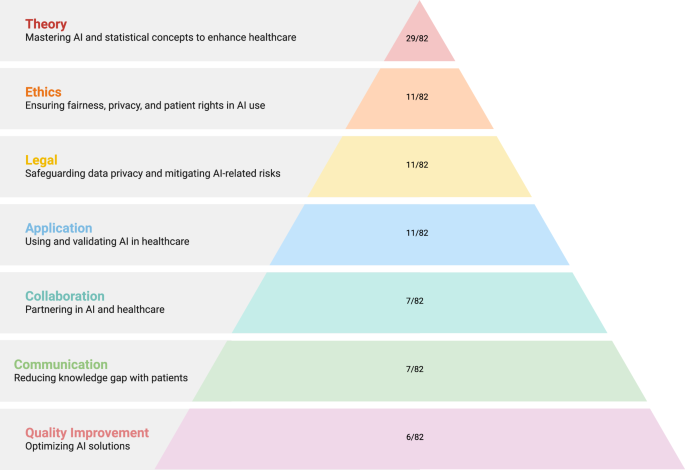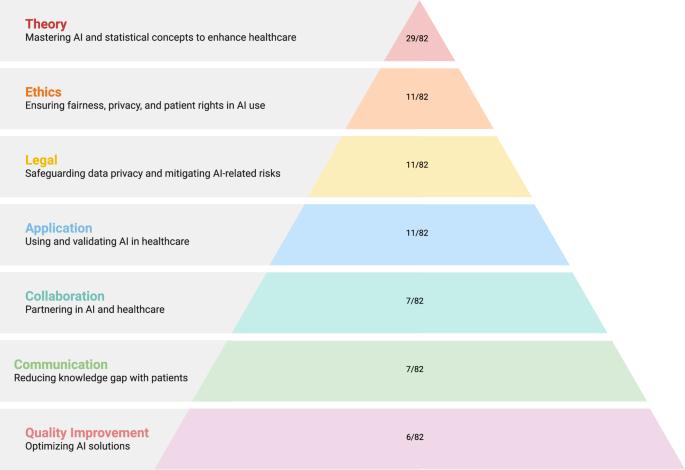利用德尔菲研究开发加拿大人工智能医学课程
IF 12.4
1区 医学
Q1 HEALTH CARE SCIENCES & SERVICES
引用次数: 0
摘要
将人工智能(AI)教育纳入医学课程对于培养未来的医疗保健专业人员至关重要。本研究采用德尔菲法,为加拿大医学本科生建立基于专家的人工智能课程。由加拿大卫生和人工智能领域的 18 位专家组成的小组参与了三轮调查,以确定基本的人工智能学习能力。研究确定了课程的主要内容,包括伦理、法律、理论、应用、沟通、协作和质量改进。研究结果表明,医学教育工作者和专业人士非常支持纳入全面的人工智能教育,107 项课程能力中有 82 项被认为是解决临床和教育优先事项的基本能力。此外,研究还就如何将这些能力纳入现有的密集医学课程提出了建议。认可的一系列目标旨在提高医学生的人工智能素养和应用技能,使他们能够在未来的医疗环境中有效利用人工智能技术。本文章由计算机程序翻译,如有差异,请以英文原文为准。


Developing a Canadian artificial intelligence medical curriculum using a Delphi study
The integration of artificial intelligence (AI) education into medical curricula is critical for preparing future healthcare professionals. This research employed the Delphi method to establish an expert-based AI curriculum for Canadian undergraduate medical students. A panel of 18 experts in health and AI across Canada participated in three rounds of surveys to determine essential AI learning competencies. The study identified key curricular components across ethics, law, theory, application, communication, collaboration, and quality improvement. The findings demonstrate substantial support among medical educators and professionals for the inclusion of comprehensive AI education, with 82 out of 107 curricular competencies being deemed essential to address both clinical and educational priorities. It additionally provides suggestions on methods to integrate these competencies within existing dense medical curricula. The endorsed set of objectives aims to enhance AI literacy and application skills among medical students, equipping them to effectively utilize AI technologies in future healthcare settings.
求助全文
通过发布文献求助,成功后即可免费获取论文全文。
去求助
来源期刊

NPJ Digital Medicine
Multiple-
CiteScore
25.10
自引率
3.30%
发文量
170
审稿时长
15 weeks
期刊介绍:
npj Digital Medicine is an online open-access journal that focuses on publishing peer-reviewed research in the field of digital medicine. The journal covers various aspects of digital medicine, including the application and implementation of digital and mobile technologies in clinical settings, virtual healthcare, and the use of artificial intelligence and informatics.
The primary goal of the journal is to support innovation and the advancement of healthcare through the integration of new digital and mobile technologies. When determining if a manuscript is suitable for publication, the journal considers four important criteria: novelty, clinical relevance, scientific rigor, and digital innovation.
 求助内容:
求助内容: 应助结果提醒方式:
应助结果提醒方式:


